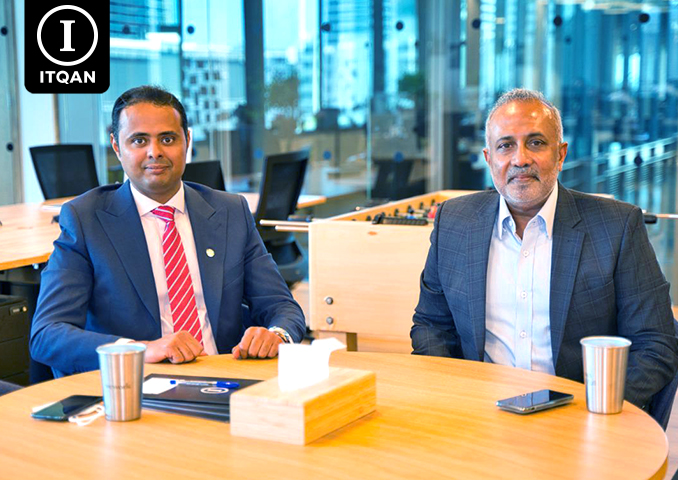Dubai’s free zones are among the most prominent global destinations for investors and entrepreneurs, thanks to the numerous advantages they offer. Establishing a company in a free zone is a strategic step for investors seeking rapid growth and high profits, as these zones provide an ideal business environment in terms of administrative facilities and tax exemptions. Dubai is a global city distinguished by its strategic location, making it a vital commercial center, which reinforces the importance of establishing companies in free zones, which offer numerous advantages.
Establishing a company in a free zone allows investors to benefit from 100% foreign ownership, giving them complete control over their business without the need for a local partner. Free zones also offer streamlined administrative procedures, speeding up the incorporation process and reducing costs compared to companies registered in onshore Dubai. Furthermore, these zones offer long-term tax exemptions, which contributes to increased profitability and reduced financial burdens.
However, despite the significant advantages, there are some special requirements that investors must consider when establishing a company in a free zone, such as determining the type of business activity, choosing the appropriate location, and submitting the necessary documents to obtain a license. In this article, we will discuss the steps for establishing a company in a Dubai free zone and the procedures necessary to achieve this goal with the greatest effectiveness and success.

Table of Contents
ToggleSteps for establishing a company in a free zone
Establishing a company in a free zone involves special procedures that are slightly different from establishing a company in the UAE mainland. Here are the general steps for establishing a company in a free zone in Dubai or any other free zone:
Choosing a company type: Select the appropriate company type, such as a limited company, limited liability company, sole proprietorship, etc.
Choosing a free zone: Selecting the free zone that best suits the company’s activity and requirements.
Submitting a registration application: Submitting an application to register the company in the selected free zone.
Defining a business activity: Accurately define the company’s activity and ensure its compliance with local regulations.
Defining shareholders and capital shares: Identifying the shareholders’ identities and determining their capital shares in the company.
Issuing a trade license: Obtaining a trade license from the free zone authority.
Company registration and legal address: Complete the company registration procedures and determine the legal address.
Determining a legal officer: Determining the company’s legal officer.
Complying with local regulations: Complying with all local regulations and legislation related to companies.
Opening a bank account: Opening a bank account for the company in an approved bank in the free zone.
Tax and insurance compliance: Ensure the company complies with all required taxes and insurance. Visas: Apply for residency visas for foreign employees if necessary.
Documents Required for Free Zone Company Incorporation
Establishing a company in Dubai’s free zones requires a set of basic documents that facilitate the process and ensure compliance with all legal regulations. The required documents vary slightly from one free zone to another, but there are common documents that must be submitted in most areas. Here is an overview of the basic documents required for free zone company incorporation:
Valid passport: All shareholders and directors must provide copies of their valid passports, as this is the primary document for personal identification.
Copies of visa and residency: If the investor or director is a UAE resident, a copy of their current residency visa must be provided.
Personal photographs: Authorities usually require two or three recent personal photographs, which is common in all incorporation procedures.
Business plan: A detailed business plan must be submitted outlining the intended business activity, the company’s objectives, and business strategies. The business plan helps authorities understand the type of business related to the company.
Office Address (Office Rent): If the company needs a physical office, a lease agreement or proof of available workspace in the free zone must be provided.
Power of Attorney (if applicable): If another person represents the founders or companies, a power of attorney issued by the relevant authorities must be provided.
Financial Evidence: Some free zones may require financial evidence demonstrating the financial capacity of the investors or new company.
Free Zone Incorporation Form: Investors must complete the official company incorporation form in the relevant free zone.
Advantages of Establishing a Company in a Free Zone
Establishing a company in a free zone in Dubai or the UAE in general offers many advantages that attract entrepreneurs and investors from around the world. Here are some of the key advantages of establishing a company in a free zone:
Full Foreign Ownership: In free zones, foreign investors can own 100% of the company without the need for a local partner, giving them complete control over the company’s operations.
Tax Exemptions: Free zones offer tax exemptions on profits, often exempting companies from taxes for 15 to 50 years, contributing to increased profitability.
Value Added Tax (VAT) Exemption: In many free zones, companies are exempt from paying VAT on business activities within the zone, reducing the financial burden on businesses.
Ease of Profit Repatriation: Free zones allow capital gains to be transferred abroad without restrictions or additional fees, making it easier for companies to engage in international markets.
Business Facilities: Free zones offer advanced infrastructure, including warehousing facilities, ports, and airports, facilitating shipping and distribution operations worldwide.
Simple Procedures and Fast Licensing: The process of establishing a free zone is typically faster and easier than that of a traditional free zone, with fewer paperwork and licensing requirements.
Employment and Visa Application: Free zones allow the issuance of residence and work visas for employees and investors, facilitating recruitment and providing human resources for the company. Access to international markets: Establishing a company in a free zone provides a strategic location that facilitates access to international markets in Europe, Africa, and Asia, enhancing opportunities for expansion and growth.
In conclusion, establishing a company in a Dubai free zone represents an ideal opportunity for investors and entrepreneurs seeking to benefit from a flexible business environment and attractive tax benefits. Free zones offer 100% foreign ownership, allowing them complete control over their businesses, in addition to streamlined procedures and quick licensing. Tax exemptions and competitive customs duties also contribute to lower operating costs, making Dubai an ideal destination for expansion and growth.
However, it is essential for investors to have a clear understanding of all the legal and administrative requirements related to establishing a company in a free zone. Registration procedures may vary depending on the type of activity and the selected free zone. It is also important to determine the most appropriate location for the business, as each free zone offers specific advantages related to the targeted business activity.
To ensure success, it is best to consult with specialized company formation companies, such as Itqan, which offer comprehensive services that facilitate the incorporation and registration process and ensure compliance with all legal requirements. This step saves time and effort, allowing investors to focus on developing their businesses.
Ultimately, Dubai offers a robust and thriving business environment, and choosing to establish a company in a free zone is a strategic choice for ambitious investors seeking to capitalize on the many opportunities this global city offers. With proper planning and an understanding of the business environment, anyone can achieve sustainable and profitable success in this growing market.
Top Frequently Asked Questions About Setting Up a Company in a Free Zone
What is a Free Zone?
A free zone is a special commercial area that provides facilities and services to foreign and local companies, and is dedicated to specific business activities such as trade, industry, and services. It allows investors to establish companies in a flexible and business-friendly environment.
What types of companies can be established in a free zone?
Free zone companies can be established in various forms, such as limited liability companies (LLCs), joint-stock companies, sole proprietorships, and holding companies, depending on the business activity and location within the free zone.
Can I fully own the company if established in a free zone?
Yes, in most free zones, foreigners are allowed to own 100% of the company without the need for a local partner.
What are the costs of establishing a company in a free zone?
The cost of establishing a company varies depending on the free zone and type of business. Costs typically include licensing fees, rent, and government fees. Investors can expect costs starting at several thousand dirhams, depending on the specific requirements of each zone.














